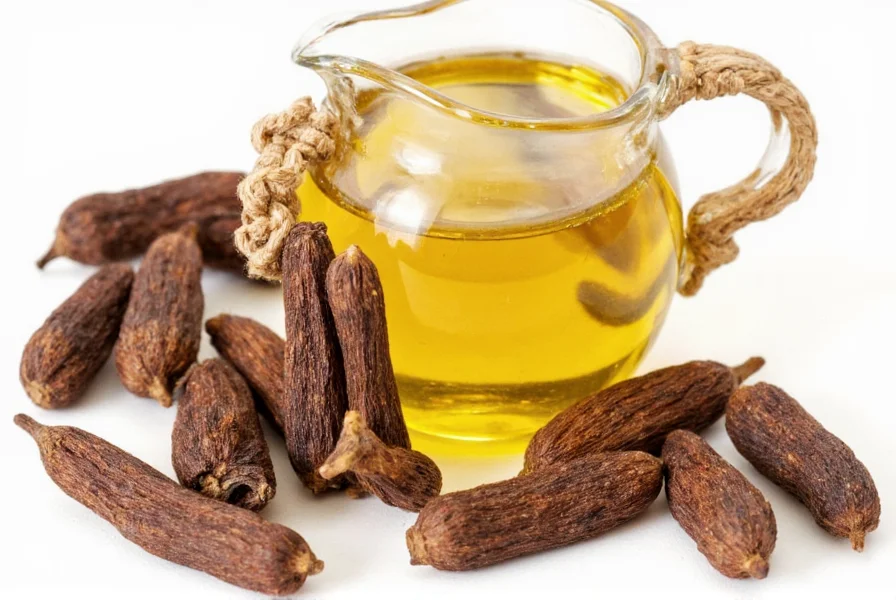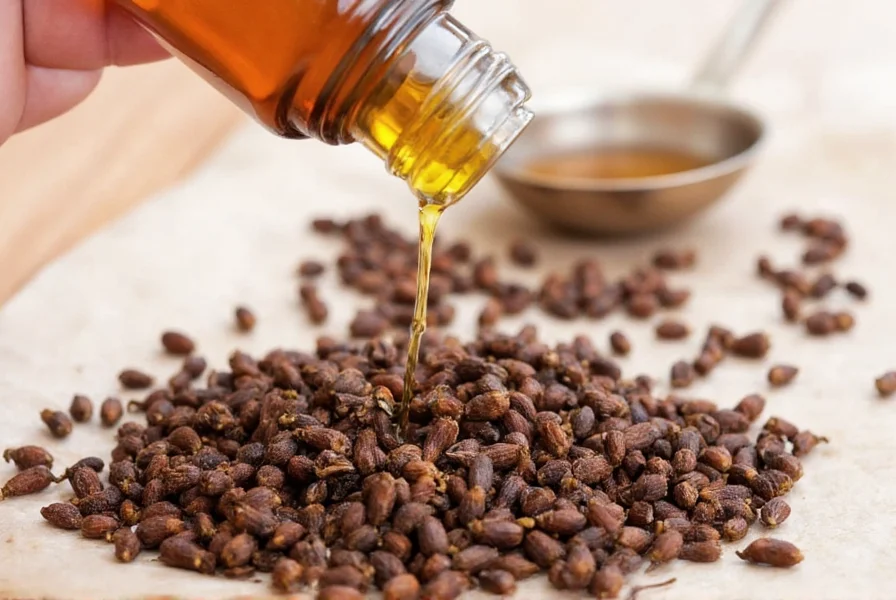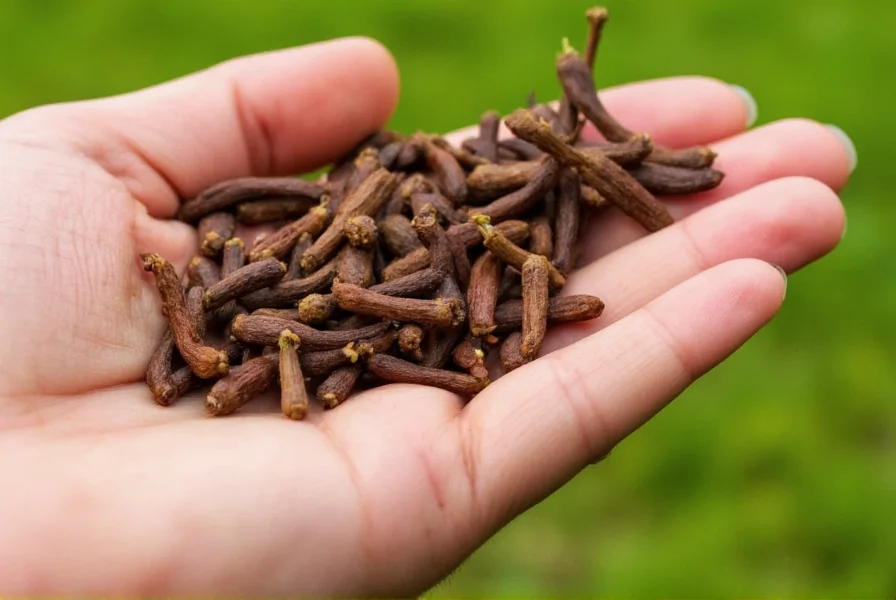Making clove oil at home provides an affordable, natural alternative to commercial products while allowing you to control the quality and purity of your final product. This guide details a safe, effective cold infusion method that preserves the beneficial eugenol content found in cloves, which gives clove oil its renowned therapeutic properties.
Why Make Your Own Clove Oil?
Homemade clove oil offers several advantages over store-bought versions. You can ensure complete purity without additives or dilution, often found in commercial products. The cold infusion method maintains the delicate chemical compounds that provide clove oil's medicinal benefits, particularly for dental discomfort and minor skin irritations. Plus, creating your own natural remedies connects you with traditional healing practices that have been used for centuries across various cultures.
Essential Materials for Homemade Clove Oil
Gathering the right supplies is crucial for successful clove oil extraction. Using quality ingredients directly impacts the potency and shelf life of your final product.
| Item | Recommended Type | Why It Matters |
|---|---|---|
| Clove buds | Whole, dried, organic | Fresh, high-quality cloves contain maximum eugenol content |
| Carrier oil | Extra virgin olive oil or fractionated coconut oil | Neutral flavor and high stability for preserving active compounds |
| Container | Dark glass jar with tight lid | Protects oil from light degradation and prevents evaporation |
| Straining tool | Fine mesh strainer + cheesecloth | Ensures complete removal of plant material for clear oil |
Safety Considerations for DIY Clove Oil
While making clove oil at home is generally safe, proper precautions are essential. Clove oil is highly concentrated and must be diluted properly before use. Never apply undiluted clove oil directly to skin or mucous membranes, as it can cause irritation or chemical burns. Keep homemade clove oil away from children and pets, and store it properly labeled in a cool, dark place. People with bleeding disorders should consult a healthcare provider before using clove oil, as eugenol may affect blood clotting.
Step-by-Step Cold Infusion Method
This cold infusion technique preserves the therapeutic compounds in cloves without damaging them through heat exposure. Follow these steps for optimal results when creating your natural clove oil remedy.
- Prepare your materials: Sterilize your glass jar by washing with hot soapy water and allowing to air dry completely. Ensure all equipment is completely dry before beginning.
- Measure ingredients: Use a 1:4 ratio of dried clove buds to carrier oil. For example, 1 cup of whole cloves to 4 cups of carrier oil. This ratio ensures proper extraction without waste.
- Fill the jar: Place dried clove buds in the sterilized glass jar, filling about one-quarter full. Gently press down to remove air pockets but avoid crushing the cloves.
- Add carrier oil: Pour your chosen carrier oil over the cloves until completely submerged with at least one inch of oil above the cloves. This prevents mold growth during infusion.
- Seal and store: Tightly close the jar and place in a cool, dark location. Shake gently once daily to enhance extraction. The infusion process requires 1-2 weeks for optimal results.
- Strain the oil: After the infusion period, strain through a fine mesh strainer lined with cheesecloth. Squeeze gently to extract all oil without forcing plant material through.
- Store properly: Transfer the finished oil to dark glass dropper bottles. Label with date and contents. Properly stored homemade clove oil maintains potency for 6-12 months.

Using Your Homemade Clove Oil
For dental discomfort, dilute 1-2 drops of your homemade clove oil in 1 teaspoon of carrier oil before applying to affected area with cotton swab. Never use undiluted on gums or teeth. For skin applications, always perform a patch test first and dilute to 1-2% concentration (about 6-12 drops per ounce of carrier oil). Your natural clove oil works well as an insect repellent when diluted and applied to exposed skin, or as an aromatic addition to homemade cleaning products for its antimicrobial properties.
Troubleshooting Common Issues
If your clove oil appears cloudy, it likely contains moisture—discard and restart with completely dry materials. Weak scent indicates insufficient infusion time; return to dark storage for additional week. Mold growth means moisture was introduced—always ensure cloves and equipment are completely dry before starting. For stronger concentration, try using fresh cloves (though they introduce moisture risks) or extending infusion time up to three weeks.
Comparing Extraction Methods
While cold infusion is safest for home use, understanding other methods helps appreciate why this approach works best for DIY applications. Steam distillation produces pure essential oil but requires specialized equipment and poses burn risks. Solvent extraction uses chemicals that aren't food-safe. Heat infusion degrades delicate compounds like eugenol. The cold method preserves maximum therapeutic value while remaining accessible for home preparation without special equipment.

Frequently Asked Questions
How long does homemade clove oil last?
Properly stored in a dark glass container away from heat and light, homemade clove oil maintains its potency for 6-12 months. Check for any changes in scent or appearance before use, as these indicate degradation. For maximum shelf life, store in the refrigerator, especially in warmer climates.
Can I use fresh cloves instead of dried for making clove oil?
While fresh cloves contain more moisture which can lead to mold growth during infusion, some people prefer them for potentially higher oil yield. If using fresh cloves, ensure they're thoroughly dried on a clean towel for 24-48 hours before starting the infusion process. Dried cloves remain the safer, more reliable option for consistent results in homemade clove oil preparation.
Is homemade clove oil as effective as store-bought essential oil?
Homemade clove oil made through cold infusion contains a lower concentration of eugenol (typically 2-5%) compared to pure essential oil (70-90%). While less potent, it's safer for direct application when properly diluted and avoids potential additives in commercial products. For therapeutic applications requiring high concentration, consult a healthcare provider about appropriate use of properly diluted essential oils.
Can I speed up the infusion process with heat?
Avoid using heat to accelerate clove oil extraction, as temperatures above 100°F (38°C) degrade the beneficial eugenol compounds. The cold infusion method preserves these therapeutic properties. Patience yields superior results—allow the full 1-2 weeks for optimal extraction without compromising the oil's medicinal value through heat exposure.
What's the best carrier oil for clove oil extraction?
Fractionated coconut oil works best for clove oil extraction due to its neutral flavor, long shelf life, and ability to preserve active compounds. Olive oil is a good alternative with additional skin benefits, though it has a stronger flavor. Avoid nut-based oils if you have sensitivities, and never use mineral oil or petroleum-based products for therapeutic applications.











 浙公网安备
33010002000092号
浙公网安备
33010002000092号 浙B2-20120091-4
浙B2-20120091-4